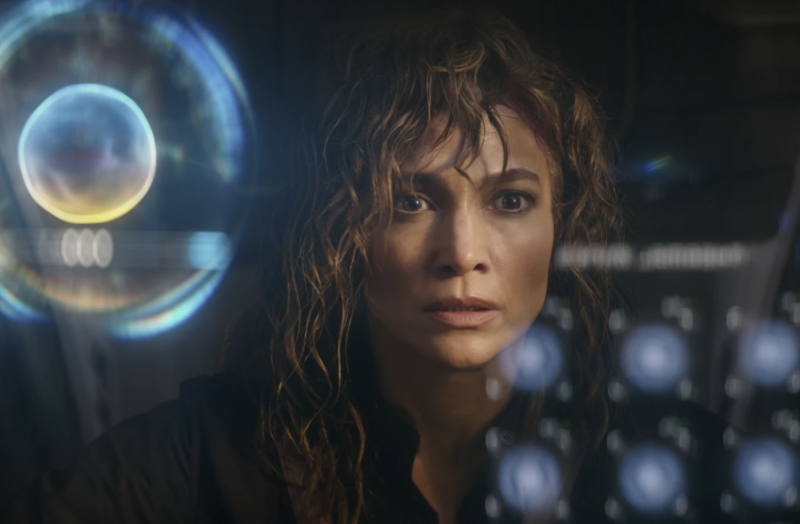Anyway, Atlas deftly manages to obtain Harlan’s location from Casca, and soon finds herself begging to join a mission to his far-off planet to capture the villainous bot, with whom she shares a mysterious past connection. At first, mission commander Banks (Sterling K. Brown) objects strenuously, but quickly and rather illogically changes his mind. (Both Liu and Brown deserve much better roles than the generic, lifeless ones they’re given.)
Soon they’re off, to GR-39 in the Andromeda galaxy, where the ICN space rangers fall into a disastrous trap laid by Harlan. It’s here that Atlas meets the most important other person in the movie — well, not a person. It’s her AI software, who proves her crucial ally once Atlas is forced to crash land, in her mechanized battle suit, onto the planet.
The key issue is trust-building. Atlas, as we said, doesn’t trust AI. As the two get to know each other, the software gives himself (he has a “default” male voice) a name: Smith
Atlas: “Is that really necessary?” Smith: “Names create an emotional reaction.” Atlas: “You’re a computer program.”
The plan consists of finding Harlan, defeating his dastardly plot to destroy humanity and getting off the planet — all while hopefully staying alive. At every step, Smith informs Atlas with all the data at his disposal how precisely desperate the odds are. This results in some amusing banter as Smith, voiced by Gregory James Cohan, “learns” sarcasm and humor.
As for Atlas, she needs to learn how to let down her guard — or rather, her brain walls. Her mistrust of AI leads her to stubbornly refuse (at first) Smith’s entreaties to use the “neural link” — a pathway into each other’s brains — that will vastly enhance Atlas’ chances of survival, combining her analytic capacity with Smith’s data access.


